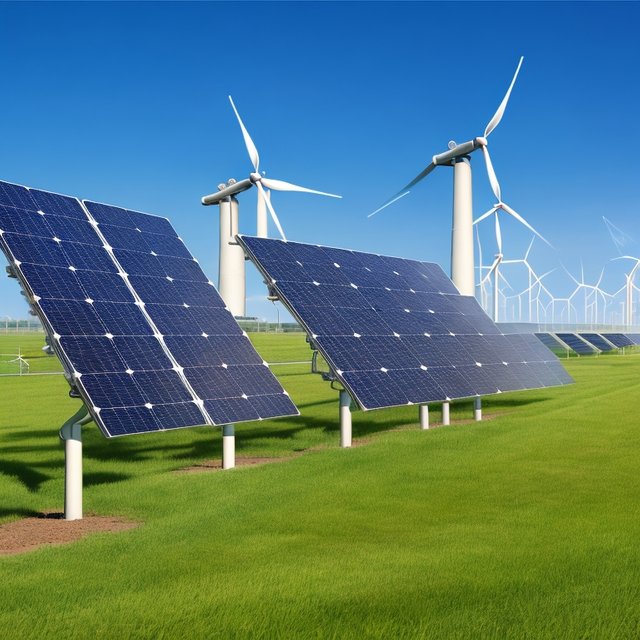Renewable Energy Technologies: Paving the Way Towards a Sustainable Future
Introduction:
The quest for sustainable and clean energy sources has led to remarkable advancements in renewable energy technologies. Solar, wind, hydro, and other renewable energy sources are playing a pivotal role in transforming the global energy landscape. As the world grapples with the challenges of climate change and the finite nature of fossil fuels, these innovative technologies offer a glimmer of hope, providing abundant, clean, and sustainable energy solutions for a brighter, greener future.
Advancements in Solar Energy:
Solar Photovoltaic (PV) Technology: Solar PV technology has witnessed tremendous growth, making it one of the most accessible and widely adopted renewable energy sources. Improvements in efficiency, cost-effectiveness, and energy storage have fueled its widespread deployment.
Concentrated Solar Power (CSP): CSP systems use mirrors or lenses to concentrate sunlight and generate electricity, making it an excellent choice for large-scale power generation.
Advancements in Wind Energy:
Turbine Technology: Wind turbine designs have evolved, with larger, more efficient turbines capturing more energy and producing higher outputs.
Offshore Wind Farms: Offshore wind farms harness stronger and more consistent winds, offering vast potential for clean energy production and minimizing land use concerns.
Advancements in Hydro Energy:
Run-of-the-River Hydropower: Run-of-the-river hydropower systems eliminate the need for large dams, reducing environmental impacts while producing sustainable energy.
Pumped-Storage Hydropower: Pumped-storage hydropower facilities store excess energy by pumping water to higher elevations during low-demand periods and releasing it to generate electricity during peak demand.
Advancements in Other Renewable Energy Sources:
Geothermal Energy: Improved drilling techniques and enhanced geothermal systems (EGS) are making geothermal energy more viable, tapping into the Earth's heat for electricity generation and heating applications.
Biomass: Advances in biomass technologies enable the conversion of organic matter into biofuels and biogas, providing renewable alternatives for transportation and heating needs.
Impact on Energy Transition:
The increasing adoption of renewable energy technologies is driving a transformative shift in the global energy mix. Key impacts include:
Emission Reduction: Renewable energy sources produce little to no greenhouse gas emissions, contributing to mitigating climate change and reducing air pollution.
Energy Independence: Diversifying energy sources through renewables reduces reliance on fossil fuels, enhancing energy security and independence.
Job Creation: The renewable energy sector generates numerous job opportunities, supporting economic growth and fostering innovation.
Community Empowerment: Small-scale renewable energy projects empower local communities to generate their energy sustainably, fostering a sense of ownership and resilience.
Challenges and Future Outlook:
While renewable energy technologies offer tremendous promise, some challenges remain:
Intermittency: Solar and wind energy are intermittent by nature, necessitating advancements in energy storage and grid management.
Infrastructure and Investment: Expanding renewable energy infrastructure requires significant investments in technology and supporting infrastructure.
Conclusion:
Renewable energy technologies are propelling the world towards a sustainable and environmentally responsible future. The advancements in solar, wind, hydro, and other renewable sources are transforming the global energy landscape, reducing greenhouse gas emissions, and fostering a greener planet. By embracing these innovative technologies, investing in research and development, and implementing supportive policies, we can accelerate the transition towards a clean energy future, ensuring a healthier planet for generations to come.
